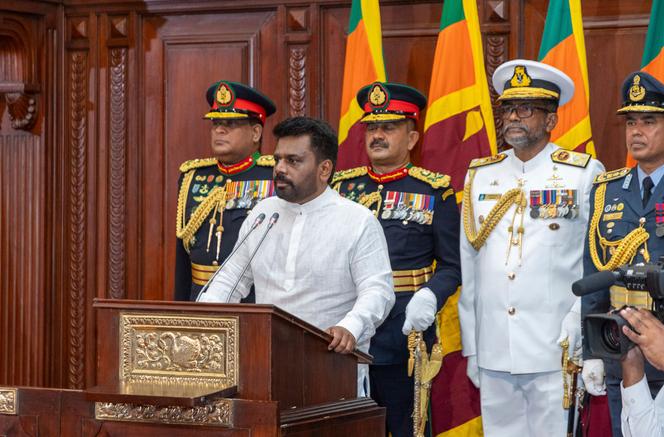


The tide has turned for India in Sri Lanka. On the desk of the new president, Anura Kumara Dissayanake, who took office on Monday, September 23, is an embarrassing affair for New Delhi. It concerns a deal secured by Gautam Adani, a member of Indian Prime Minister Narendra Modi's close inner circle. The Indian tycoon, who is at the head of a huge industrial conglomerate, won the construction of two 450 MW wind farms in the northeast on the island of Mannar and in the Pooneryn region in February 2023 without a call for tenders. The initiative was first launched by President Gotabaya Rajapaksa, who was forced to resign in July 2022.
The project, estimated to cost $442 million, has been met with opposition from local residents and an appeal has been initiated by the bishop of the Diocese of Mannar and three environmentalists to the Supreme Court of Sri Lanka. Petitioners criticize the wind turbines' environmental impact and contest their conditions and lack of transparency surrounding their allocation, as well as the negotiated kilowatt-hour prices, which are deemed prohibitively high and likely to aggravate the ongoing crisis. They are asking the Supreme Court to recognize the illegality of the decision to award the project to Adani Green Energy.
Back in June 2022, Ferdinando, chairman of the Ceylon Electricity Board, informed the parliamentary Committee on Public Enterprises that President Rajapaksa had told him Modi had pressured him to award renewable energy projects to the Adani group. He was forced to resign after these remarks.
Ignoring the controversy, Rajapaksa's successor, Ranil Wickremesinghe, gave the green light in May to a 20-year power purchase agreement that would give Adani 8.26 cents per kilowatt-hour (kWh).
The wind farm's fate now rests in the hands of the new president, who vowed during his campaign to cancel this "corrupt agreement," which he claims threatens the island's energy sovereignty. But he is not finished with Adani, who represents a real bogeyman for Sri Lanka's far left.
The new leader inherited a country in tatters, where Beijing and New Delhi have been waging a trade and influence war for years to gain a foothold on this strategic Indian Ocean island. While Beijing signed a large number of contracts under the Rajapaksa administrations, contributing heavily to the country's colossal debt level through lavish investments, India regained a foothold in the island state during the crisis by offering aid to the government, which was short of foreign currency and unable to import essential goods.
You have 56.79% of this article left to read. The rest is for subscribers only.
